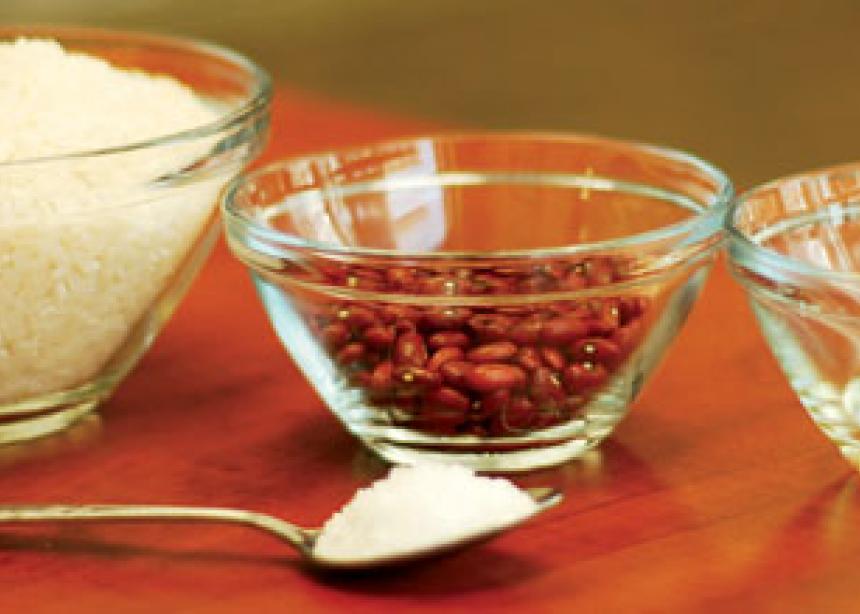Two new projects supported by Mennonite Central Committee (MCC) Canada and the Christian Reformed World Relief Committee—Canadian Foodgrains Bank member agencies—have been added to the Foodgrains Bank response to the food crisis in East Africa.
In all, $7.8 million dollars will be used to provide food to more than 230,000 people in Ethiopia and Kenya. Maize, beans, oil and famix, a supplementary food for children under five and pregnant and lactating women, will be distributed to those in need in both countries.
The Foodgrains Bank has been responding to the drought in East Africa since March, says Joan Barkman, director of international programs. “Because of a long history and strong partnerships in the area, our member agencies are in a good position to respond,” she says.
The Foodgrains Bank has received more than $270,000 in donations earmarked for East Africa Drought Relief.
Some of this money will support people in the Shashemene district of Ethiopia, an area affected by drought and poor rains, as well as by recent spikes in food prices. The Christian Reformed organization is supporting a project to distribute food to vulnerable households, including more than 6,000 children under five and pregnant and lactating mothers.
Flooding in the past and the failure of this year’s belg rains, which usually fall between February and May, have left Shashemene severely food insecure. The area has high levels of malnutrition, particularly among children under five. This project supports vulnerable people so they can stay in their homes.
In Eastern Kenya, MCC is expanding their support for food-for-work projects. (See story below.)
Other projects led by Foodgrains Bank member agencies, including Canadian Lutheran World Relief, are distributing food to vulnerable households in rural Kenya and Ethiopia, where rains have failed and crops have been damaged.
Some of the food is also going to pastoralist communities, which rely on livestock for their living, and which have been particularly hard hit by the crisis.
Donations to East African Drought Relief through the Foodgrains Bank will be matched four-to-one through a core funding agreement with the Canadian International Development Agency; until Sept. 16, donations to the Foodgrains Bank are also eligible for a special one-to-one matching contribution from the federal government.
Canadian Foodgrains Bank commits $7.8 million to East Africa drought response
More than 230,000 people in Kenya and Ethiopia to receive food through Foodgrains Bank member agencies.
August 17, 2011 | God at work in the World | Number 16
Canadian Foodgrains Bank
A typical ration for one adult for one day—as outlined by the World Health Organization—includes 460 grams of cereal, 50 grams of pulses, 50 grams of oil and five grams of salt.
Share this page:




Add new comment
Canadian Mennonite invites comments and encourages constructive discussion about our content. Actual full names (first and last) are required. Comments are moderated and may be edited. They will not appear online until approved and will be posted during business hours. Some comments may be reproduced in print.